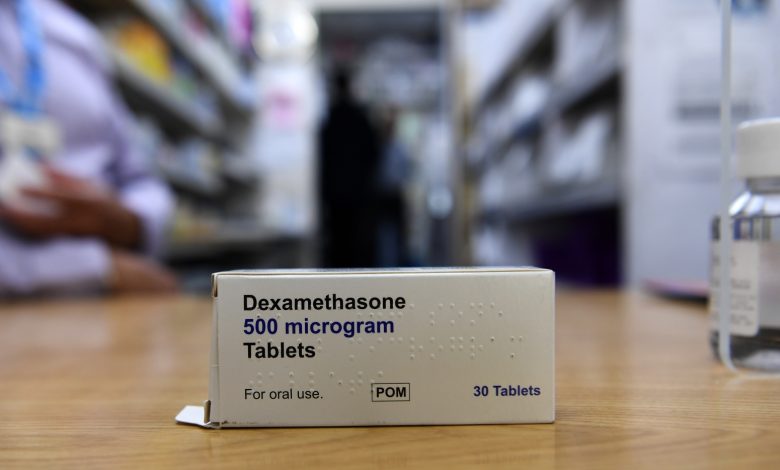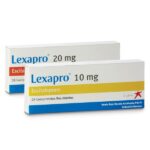How Long Do Side Effects Of Dexamethasone Last?

According to drugs.com side effects are usually regarded as undesirable secondary effects which occur in addition to the desired therapeutic effect of a drug or medication. Side effects may vary for each individual depending on the person’s disease state, age, weight, gender, ethnicity, and general health.
Side effects can occur when commencing, decreasing/increasing dosages, or ending a drug or medication regimen. Side effects may also lead to non-compliance with prescribed treatment.
What is Dexamethasone?
Dexamethasone is a synthetic glucocorticoid used in the treatment of inflammatory and immune conditions in children and adults. It is available in forms that can be taken by mouth, through a patch placed on the skin, as a cream, in eye drops, and as an injectable. Take the tablet form of the medication with a full glass of water (8 oz). To prevent stomach upset, it can be taken with food.
Dexamethasone is typically used for treating chronic conditions, but it can be a short-term treatment for acne. Because it suppresses the immune system, dexamethasone isn’t usually prescribed when a person is at risk of developing an infection. However, it is sometimes used, with caution, to manage the effects of severe inflammatory reactions caused by infections.
Dexamethasone is approved for treating acute and chronic illnesses as well as certain medical emergencies.
Common conditions treated with dexamethasone include:
• Inflammatory conditions, including osteoarthritis, rheumatoid arthritis, ankylosing spondylitis, bursitis, systemic lupus erythematosus (SLE), and rheumatic carditis
• Skin conditions like severe psoriasis, pemphigus, Stevens¬ Johnson syndrome, and atopic dermatitis
• Respiratory inflammation in laryngeal edema (swelling of the throat), childhood croup, and bronchial asthma
• Inflammation of the eye associated with uveitis, choroiditis, and optic neuritis
• Neurological diseases like multiple sclerosis and temporal arteritis
• Gastrointestinal disease like ulcerative colitis
• Systemic conditions including autoimmune hemolytic anemia and nephrotic syndrome
• Severe infections related to pulmonary tuber¬culosis
• Cerebral edema (swelling of the brain) due to cancer, trauma, a severe stroke, or brain surgery
It may also be used for:
• Replacement of glucocorticoids in acute and chronic adrenal insufficiency such as Addison’s disease
• Adjunctive treatment with chemotherapy for cancer, including leukemia and multiple myeloma
• Pre-operative treatment before certain procedures
Typically, dexamethasone is used as a supplement to other treatments. The conditions that this medication is used to treat are very different from one another and are generally treated with other medications or procedures in addition to dexamethasone.
Off-Label Uses
Sometimes, dexamethasone is used to manage symptoms characterized by swelling and hyperreactive inflammation even when a diagnosis is not clearly established.
How should dexamethasone be used?
Dexamethasone comes as a tablet and a solution to take by mouth. Your doctor will prescribe a dosing schedule that is best for you. Follow the directions on your prescription label carefully, and ask your doctor or pharmacist to explain any part you do not understand. Take dexamethasone exactly as directed. Do not take more or less of it or take it more often than prescribed by your doctor.
Do not stop taking dexamethasone without talking to your doctor. Stopping the drug abruptly can cause loss of appetite, upset stomach, vomiting, drowsiness, confusion, headache, fever, joint and muscle pain, peeling skin, and weight loss. If you take large doses for a long time, your doctor probably will decrease your dose gradually to allow your body to adjust before stopping the drug completely. Watch for these side effects if you are gradually decreasing your dose and after you stop taking the tablets or oral liquid, even if you switch to an inhalation corticosteroid medication. If these problems occur, call your doctor immediately. You may need to increase your dose of tablets or liquid temporarily or start taking them again.
Dexamethasone side effects
The common side effects of dexamethasone include:
• anxiety
• dizziness
• headache
• high blood glucose
• high blood pressure
• low potassium levels (causing symptoms such as tiredness)
• mood changes, such as depression, shifts in mood, or personality changes
• nausea
• stomach upset
• swelling (edema)
• trouble falling asleep
• vomiting
If these effects are mild, they may go away within a few days or a couple of weeks. If they’re more severe or don’t go away, talk with your doctor or pharmacist.
Serious side effects
Call your doctor right away if you have serious side effects. Call 911 if your symptoms feel life-threatening or if you think you’re having a medical emergency. Serious side effects and their symptoms can include the following:
• Unusual tiredness
• Unusual dizziness
• Unusual digestive upset. Symptoms can include:
o abdominal pain
o nausea or vomiting
• Blood in your stool, or black stools
• Blood in your urine
• Unusual bleeding or bruising
• Unusual swelling throughout your body, or bloating in your abdomen (stomach area)
• Infection. Symptoms can include:
o fever
o muscle aches
o joint pain
• Changes in mood or thoughts, or mood disorders such as depression. Symptoms can include:
o severe mood shifts
o euphoria (a feeling of intense happiness)
o trouble sleeping
o personality changes
• Severe allergic reaction. Symptoms can include:
o fever
o trouble breathing
• Adrenal insufficiency. Symptoms can include:
o tiredness
o nausea
o darkened skin color
o dizziness when standing
• More frequent infections (can occur with long-term use)
• Stomach ulcers. Symptoms can include:
o pain in the abdomen (stomach area)
• Congestive heart failure. Symptoms can include:
o shortness of breath
o tiredness
o swollen legs
o rapid heartbeat
• Osteoporosis (thinning of the bones)
How Long Do Side Effects Of Dexamethasone Last
Studies have shown that dexamethasone is a long-acting medication with a half-life of 36 to 72 hours. About 94 to 97% of a drug will have been eliminated after 4 to 5 half-lives. Thus, it follows that after 4 to 5 half-lives, the plasma concentrations of a given drug will be below a clinically relevant concentration which implies that the effects and side effects of the drug can be felt for up to 15 days after you have stopped taking the medication.
Once you start taking dexamethasone, report any unexpected symptoms to your doctor or pharmacist as soon as possible. This includes changes in your sex life, which many patients are embarrassed or afraid to talk about.
Some side effects of dexamethasone go away over time as your body gets used to a new drug, so your doctor may recommend you stick with your current plan for a little longer. In other cases, you may be able to lower your dose, try a different drug, or add another one, like an anti-nausea medicine, to your routine.





